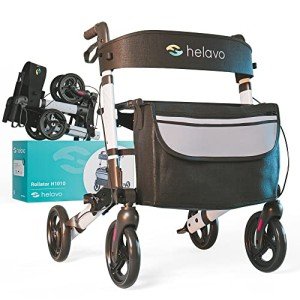10 Things We Are Hating About Mobility Assistance
Understanding Mobility Assistance: A Comprehensive Guide
In an increasingly active world, mobility assistance has ended up being important for lots of people. Whether due to age, injury, or chronic disease, mobility challenges can significantly impact day-to-day life. This post explores the different types of mobility assistance, their advantages, and useful considerations for those seeking aid.
What is Mobility Assistance?
Mobility assistance incorporates a variety of services, gadgets, and adjustments created to help individuals move securely and efficiently. It aims to improve self-reliance for those with troubles in movement, allowing them to carry out daily activities and engage with their environments.
Kinds Of Mobility Assistance Devices
Mobility assistance devices can vary widely, from simple to intricate aids. The following table describes some typical kinds of mobility assistance devices, their descriptions, and suitable usages:
Type of Device
Description
Appropriate For
Wheelchairs
Wheeled mobility devices for people with restricted walking ability.
Irreversible or momentary mobility needs.
Walkers
Frames with four legs, providing support while walking.
People requiring a stable aid.
Canes
Lightweight sticks using support; includes basic and quad canes.
Those with mild mobility concerns.
Crutches
Gadgets created to transfer weight off the legs.
Post-surgery healing or injuries.
Mobility Scooters
Motorized vehicles providing transport over short ranges.
Those with mobility problems.
Stairlifts
Motorized chairs that go up and down stairs.
Multilevel homes with stair accessibility issues.
Home Modifications
Structural modifications, such as ramps or larger entrances.
Enhancing home ease of access for wheelchairs or walkers.
Transfer Aids
Devices like moving boards or lift systems for simpler transfers.
Assistance in transferring to and from chairs or beds.
Benefits of Mobility Assistance
The significance of mobility assistance extends beyond physical motion. Here are numerous essential advantages:
- Enhanced Independence: Mobility gadgets empower users to perform everyday tasks separately, promoting self-sufficiency.
- Improved Quality of Life: By allowing greater participation in social activities, mobility assistance contributes to emotional well-being and social integration.
- Security and Support: Devices like walkers and canes provide physical support, reducing the threat of falls and injuries.
- Access to Healthcare: Mobility assistance can simplify transport to medical consultations, ensuring users receive vital care.
- Personalization Options: Many mobility gadgets can be tailored to fit private needs and choices, guaranteeing comfort and functionality.
Common Mobility Assistance Challenges
While mobility assistance can lead the way for greater self-reliance and enhanced lifestyle, different difficulties might emerge. Some of the typical concerns consist of:
- Cost: Mobility devices can be costly, and insurance protection may differ significantly.
- Training and Familiarization: Learning to use new devices appropriately may need time and assistance.
- Ease of access Issues: Not all environments are geared up to accommodate mobility gadgets, resulting in prospective barriers.
- Preconception: Social preconception around the usage of mobility help can impact self-esteem for some individuals.
Providing and Receiving Mobility Assistance
To ensure the most effective assistance, it is very important for both providers and receivers of mobility aid to think about a number of elements:
- Assessment of Needs: A comprehensive assessment by a health care professional can figure out the specific type of assistance needed.
- Trial Period: Trying out devices can help people find the one most suited to their way of life and choices.
- Regular Maintenance: Maintenance of mobility devices makes sure resilience and security.
- Education: Providing training on the proper usage of mobility help is vital for optimizing advantages.
Mobility Assistance FAQs
Q1: What kinds of mobility aids are available?A: Common mobility help include wheelchairs, walkers, walking sticks, crutches, and scooters, to name a few. Each gadget is created to meet particular needs and preferences.
Q2: Where can I get mobility assistance devices?A: Mobility gadgets can be gotten from medical supply shops, online sellers, or through healthcare service provider suggestions.
Q3: Will my insurance cover mobility assistance devices?A: Many insurance strategies provide partial protection for mobility aids, but protection can differ based on the policy. Secure Rollator Walker 's recommended to consult the insurance provider for particular details.
Q4: How can I adjust my home for mobility assistance?A: Home adjustments like ramp installation, wider doorframes, and get bars in restrooms can greatly boost ease of access. Consulting with an occupational therapist can provide customized services.
Q5: How do I pick the right mobility aid for me or an enjoyed one?A: Assess the individual's mobility needs, weight capability, and lifestyle. Experimenting with various devices can likewise assist in selecting the one that feels most comfortable and functional.
Mobility assistance plays an essential role in enhancing the self-reliance, safety, and lifestyle for individuals facing mobility difficulties. From basic canes to complicated mobility scooters and home adjustments, a variety of alternatives exist to fulfill unique needs. As society continues to acknowledge the value of accessibility, the integration of mobility assistance options into life will enhance, ensuring that everybody has the chance to lead a satisfying and active lifestyle.
By understanding the offered alternatives and benefits, people and their households can make informed decisions that support their mobility requires.
